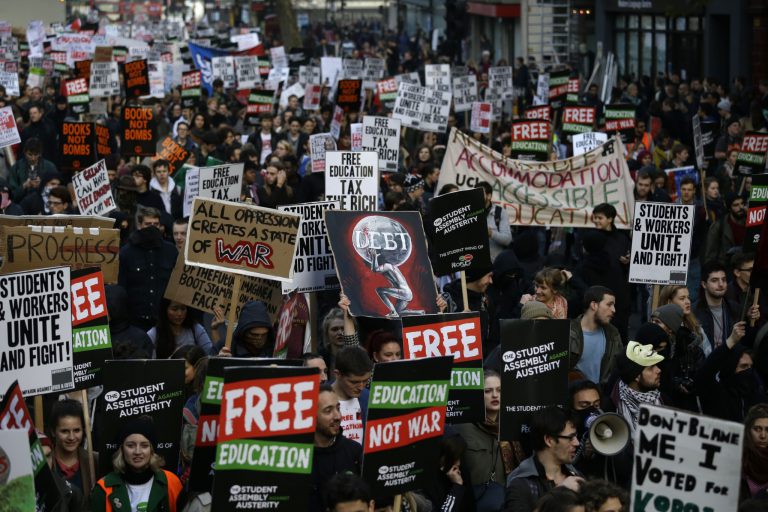
As tuition fees continue to feature heavily in UK election debates and political campaigning, new research is uncovering the hidden effects of tuition prices on students – especially those from low-income backgrounds.
A study conducted by the National Education Opportunities Network (Neon) of about 1,500 students applying to university this year found that tuition costs affected a number of choices, including which courses students enrolled in and even where they decided to study. The students, who came from eight different parts of the country, answered questions about their understanding of higher education finances and the role education costs play in their decision-making.
The study found that students from lower participation neighborhoods (with fewer peers going to university, and often lower-income populations) were 20 percent more likely to choose to study at a university closer to home or live at home while studying than those from the highest participation areas.
Lower-income students are generally more likely to take on part-time or even full-time jobs to help support and pay for their educational costs than their wealthier peers. Tuitions fees have an impact on this aspect of student life as well – when students were asked how a hypothetical lowering of fees to £6,000 would affect their choices, more than half of them (60 percent) said they would choose to work less during the semester.
In addition, 45 percent of respondents said they would choose a different course of study if costs were lowered, indicating that many students are choosing to study a less expensive program or one they feel will put them in better financial shape upon graduation, rather than pursuing the subjects they would actually like to study.
These results come amid national surprise over the fact that a tuition fee hike instituted in 2012 did not, as anticipated, lead to falling university application rates among young full-time students. In fact, applications from students from disadvantaged neighborhoods actually increased.
Cost itself, it seems, does not so much prohibit students from going to university as it does restrict their decisions about what they do while there. The majority of respondents said they would reconsider higher education overall if annual fees were more than £15,000, but many students said they would still apply to university, no matter the price, as long as they were able to borrow money to cover the costs.
It seems that, though fees clearly have not prevented – and likely will not deter — students from continuing to apply to university, they may be affecting their choices about where and what they study, leading them to choose programs that are geographically closer and cheaper, even though it may not be the course of study they actually want to pursue.
One issue contributing to this problem is the lack of understanding of financial aid and the overall higher education financial structure on the part of students.
The study found that more than 40 percent of the students surveyed had no idea if they were even eligible for a grant, and only 18 percent knew that they were able to borrow up to £5,700 to defer costs for studying and living away from home outside of London. The numbers were even more concerning for lower-income students – respondents from the group of lowest participation neighborhoods were 13 percent more likely to say they didn’t know if they were eligible for grants than students from the 20 percent of highest participation neighborhoods.
Like this? You’ll love these…
£6,000 tuition fees in England would likely hurt other UK students, schools
International student decline in the UK: Both parties stay quiet on political ‘hot potato’







